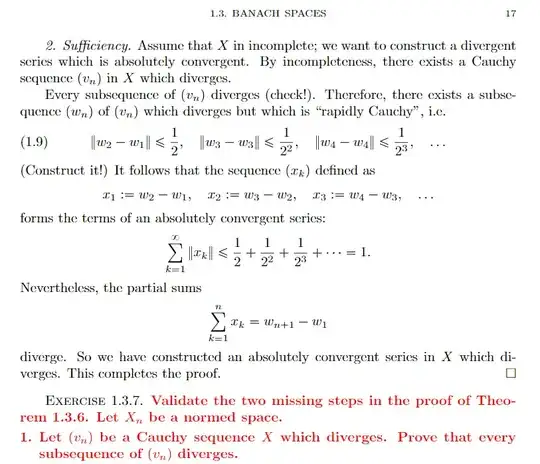Let $X$ be a Banach space, $X_n$ be a normed space. Let $(v_n)$ be a Cauchy sequence $X$ which diverges. Prove that every subsequence of $(v_n)$ diverges.
First of all, I have a hard time believing that a Cauchy sequence can be divergent at all. But I have found one post about this (Can we find a divergent Cauchy sequence?) and it is said that if our space is finite dimentional, then we cannot construct any Cauchy sequence that would be divergent. I assume that in a normed space it is possible (right?).
Anyway, how should I prove such preposition?
And for those who downvote this question without explanations: this question is from the book "Lectures in Functional Analaysis" by Roman Vershynin, page 17, Exercise 1.3.7(1).
